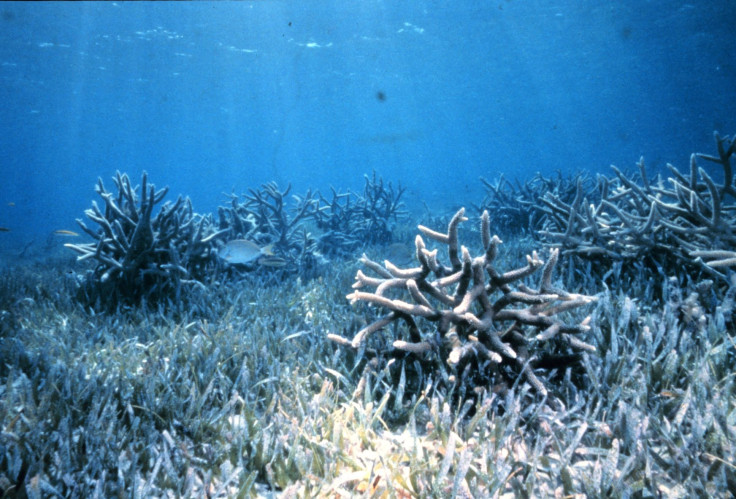Coral Reefs Bleaching Too Frequently To Recover, Scientists Say

Coral reefs all over the world suffered bleaching events in 2017 and a new study published Thursday in Science says they might not be able to recover or keep up with the changing climate.
When the reefs come under stressful conditions, like unusually warm or cold temperatures or high levels of pollution, they bleach, or lose their algae which is a significant food source for the corals. The algae is also what gives corals their color, which is why when corals lose their algae and turn white it’s called a bleaching event.
However, when a coral bleaches, it does not necessarily die. Corals can bounce back from a bleaching event if the circumstances that caused the bleaching to occur subside, according to the National Oceanic and Atmospheric Administration, or NOAA.
But if the stressful conditions last for too long, the corals do die, rather than recover. Bleaching events are occuring four to five times more frequently than they were about 40 years ago. These days, corals have less time to recover between bleaching events, only about six years, making them more vulnerable and not allowing for full recovery, says the study.
In addition to the bleaching events, the study identifies El Ninos and La Ninas that are warmer than they have been in the past as another reason the reefs are struggling to recover. To come to these conclusions the researchers involved looked at 100 coral reefs around the world and measured the bleaching events between 1980 and 2016. They found that only a few of the reefs examined didn’t experience a bleaching event.
Corals are important for a number of reasons. They serve as a home to various ecosystems including marine life and organisms that are used for food and medicine by humans. The coral reefs also help protect landforms and coastlines, not to mention they provide fun vacation activities.
© Copyright IBTimes 2025. All rights reserved.



















